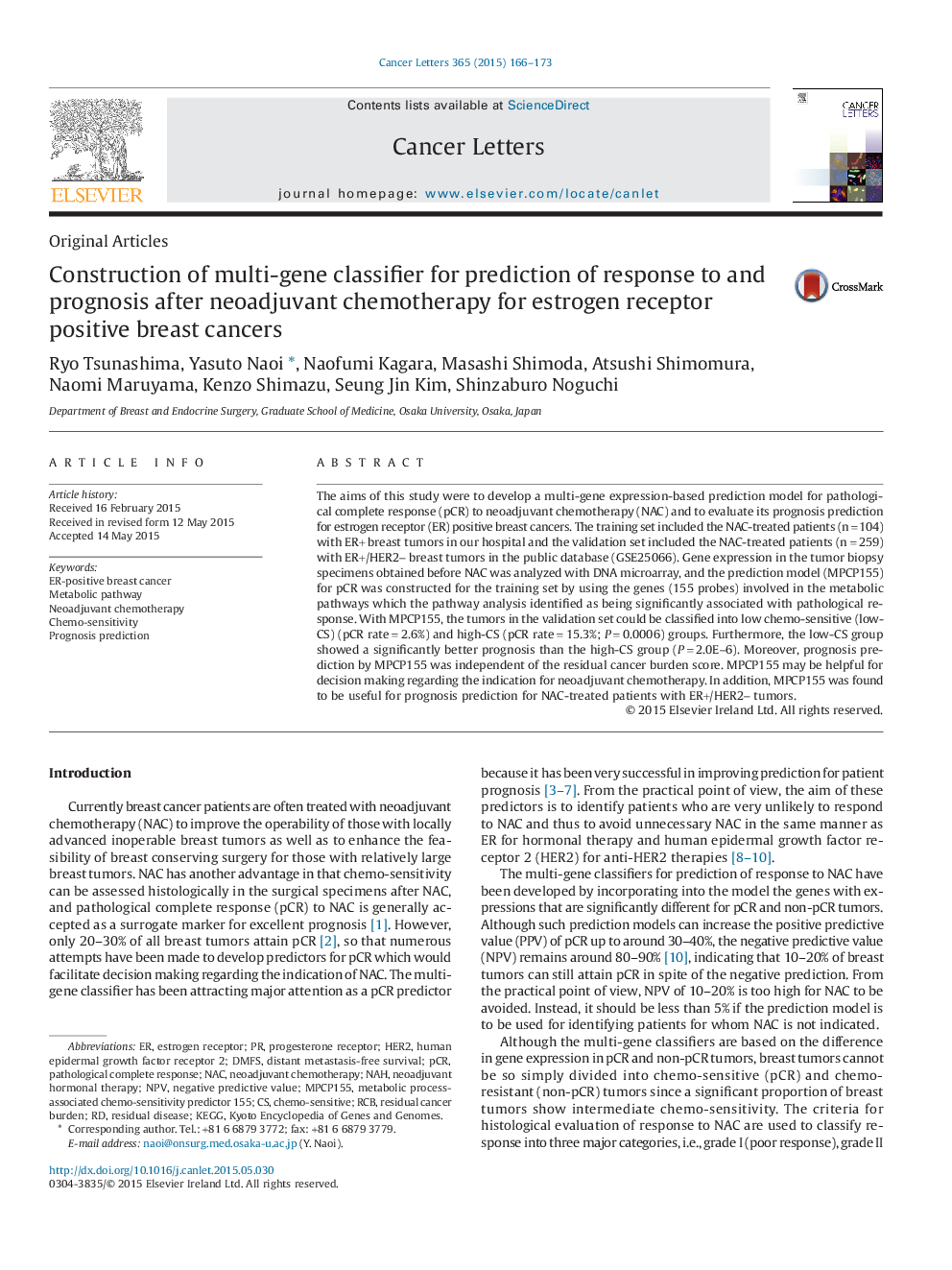| Article ID | Journal | Published Year | Pages | File Type |
|---|---|---|---|---|
| 2112411 | Cancer Letters | 2015 | 8 Pages |
•Metabolic pathways were found to be involved in sensitivity to neoadjuvant chemotherapy (NAC) in ER+ breast cancer.•Prediction model (MPCP155) for pathological complete response (pCR) was constructed using the genes involved in metabolism.•MPCP155 was a significant predictor for pCR in ER+/HER2− breast cancer.•MPCP155 was also a significant predictor for recurrence in NAC-treated patients with ER+/HER2− breast cancer.•MPCP155 may be helpful for decision making regarding the indication for NAC.
The aims of this study were to develop a multi-gene expression-based prediction model for pathological complete response (pCR) to neoadjuvant chemotherapy (NAC) and to evaluate its prognosis prediction for estrogen receptor (ER) positive breast cancers. The training set included the NAC-treated patients (n = 104) with ER+ breast tumors in our hospital and the validation set included the NAC-treated patients (n = 259) with ER+/HER2− breast tumors in the public database (GSE25066). Gene expression in the tumor biopsy specimens obtained before NAC was analyzed with DNA microarray, and the prediction model (MPCP155) for pCR was constructed for the training set by using the genes (155 probes) involved in the metabolic pathways which the pathway analysis identified as being significantly associated with pathological response. With MPCP155, the tumors in the validation set could be classified into low chemo-sensitive (low-CS) (pCR rate = 2.6%) and high-CS (pCR rate = 15.3%; P = 0.0006) groups. Furthermore, the low-CS group showed a significantly better prognosis than the high-CS group (P = 2.0E−6). Moreover, prognosis prediction by MPCP155 was independent of the residual cancer burden score. MPCP155 may be helpful for decision making regarding the indication for neoadjuvant chemotherapy. In addition, MPCP155 was found to be useful for prognosis prediction for NAC-treated patients with ER+/HER2− tumors.
